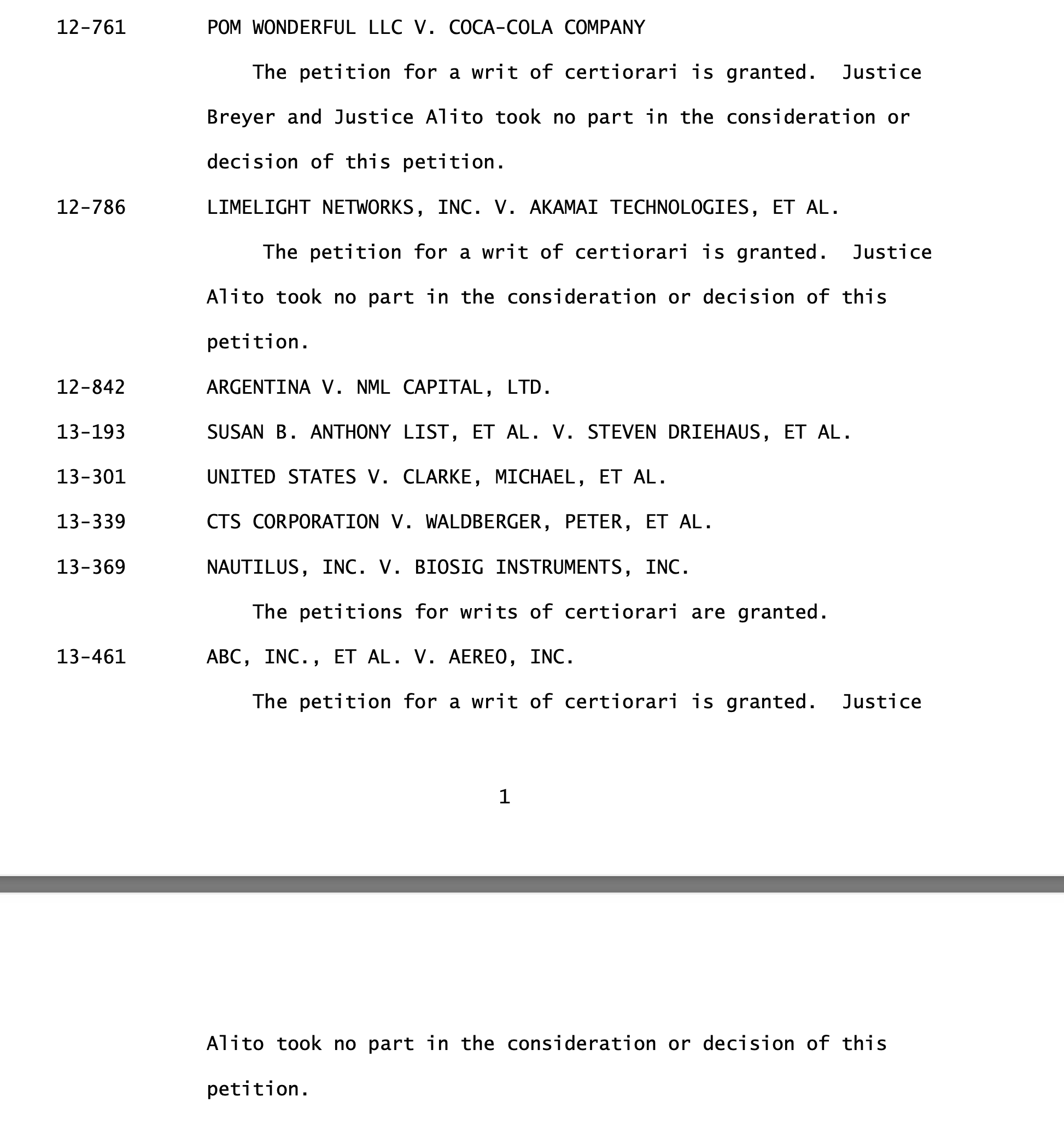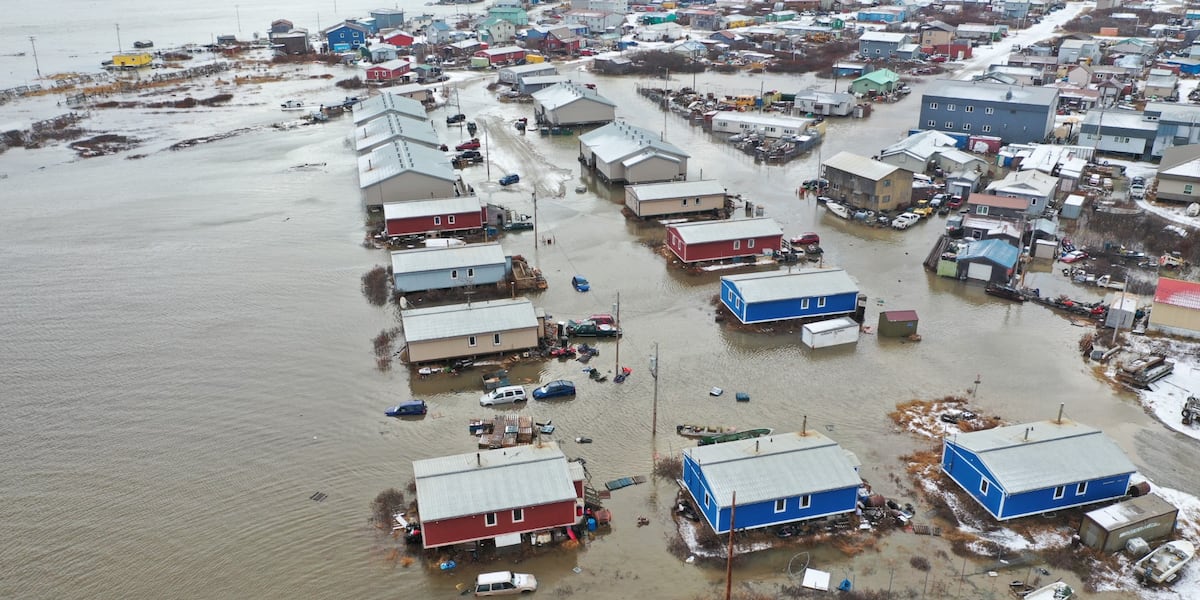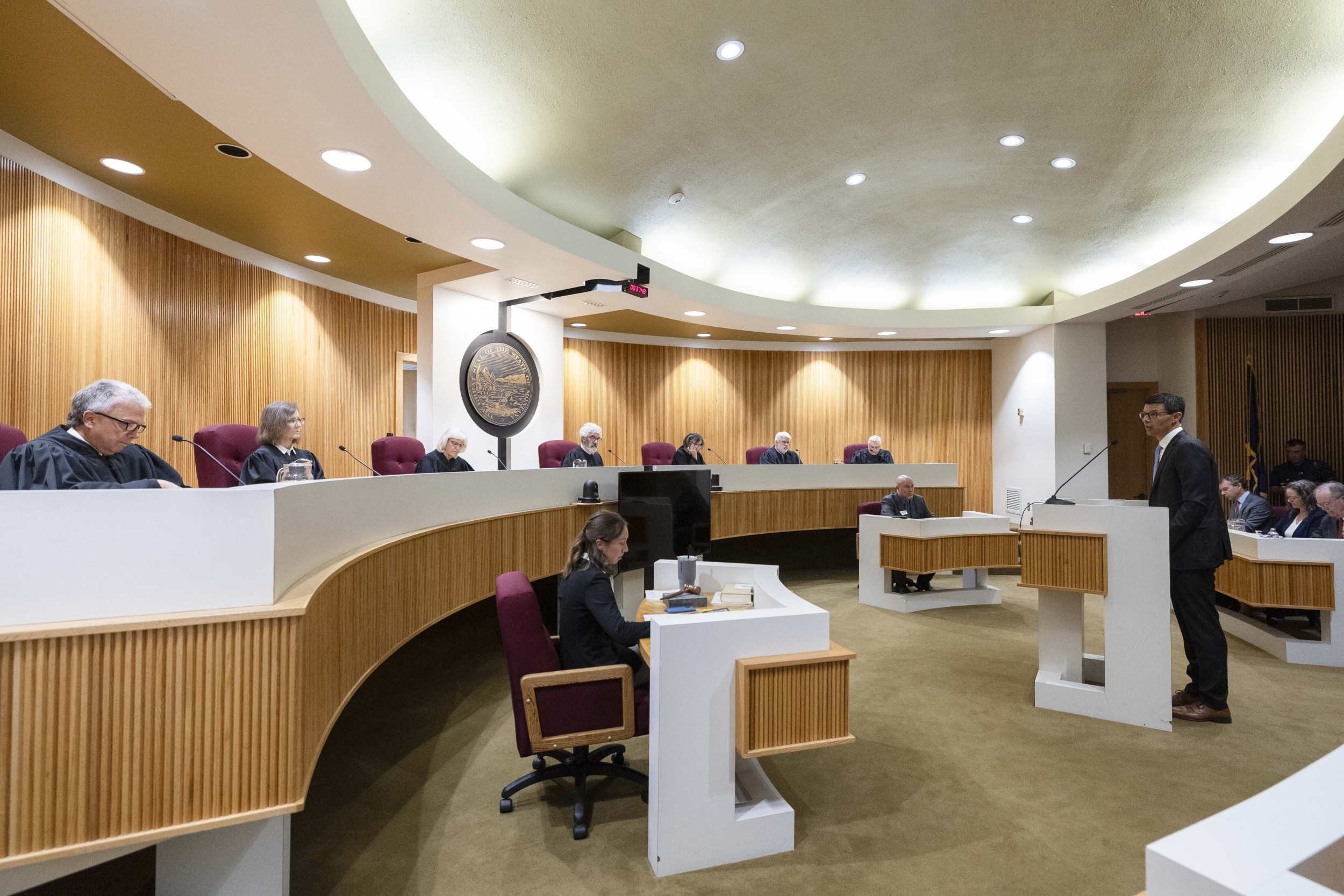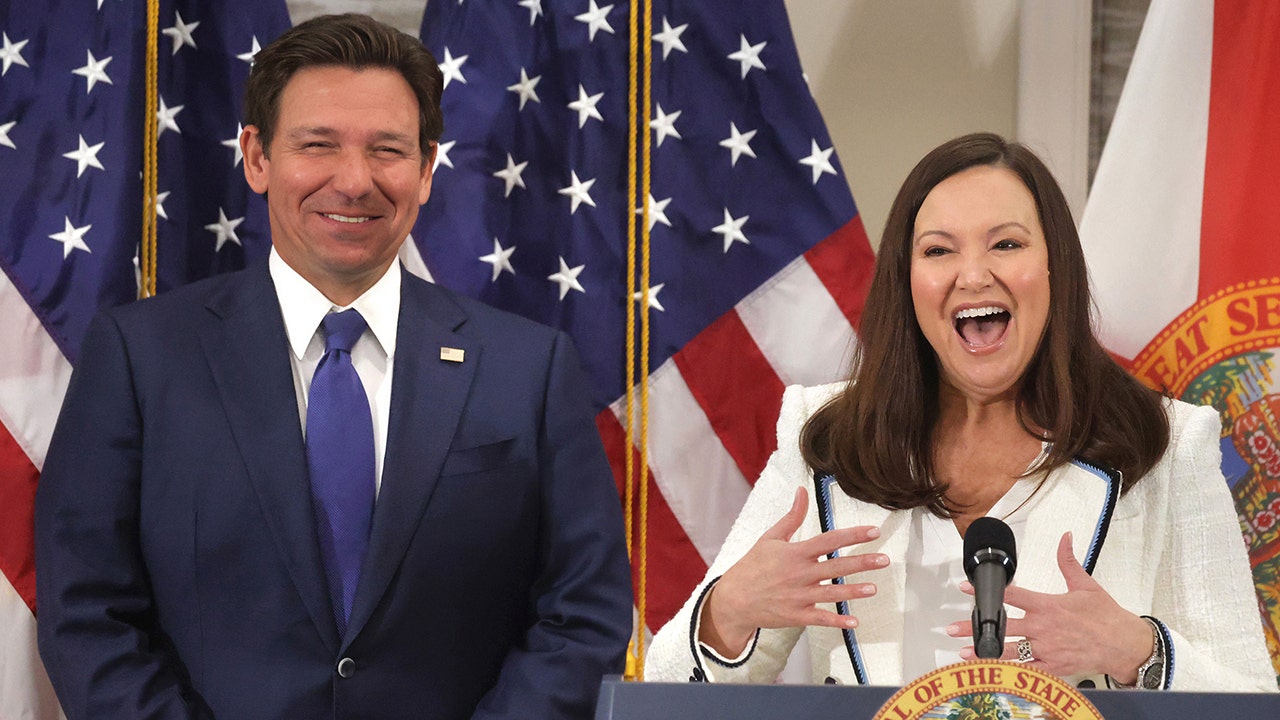Alaska
Justice Alito revealed GOP billionaire-sponsored Alaskan fishing trip more than a decade before ProPublica report

Supreme Court Associate Justice Samuel Alito speaks during the Federalist Society’s 40th Anniversary at Union Station in Washington, Monday, Nov. 10, 2022. (AP Photo/Jose Luis Magana)
Rather than commenting on the record to the source of recent exposés on his conservative colleague Justice Clarence Thomas’ GOP billionaire-sponsored luxury yacht trips, Justice Samuel Alito penned an op-ed in the Wall Street Journal on to say that there was nothing to see in a forthcoming story about a 2008 Alaskan fishing trip.
Alito preempted the publication of “Justice Samuel Alito Took Luxury Fishing Vacation With GOP Billionaire Who Later Had Cases Before the Court” with the op-ed after being given the weekend to respond a series of questions about taking a private jet to Alaska in 2008 on the dime of Elliott Management hedge fund billionaire and GOP donor Paul Singer, chairman at the Manhattan Institute — an influential conservative policy think tank — friend of the Federalist Society, and so-called “vulture capitalist.”
Wait, an Alito free private luxury jet trip to Alaska with Paul Singer, the same Paul Singer who initially funded Fusion GPS’s oppo work on Donald Trump?
World sure is funny.
Gift link: https://t.co/dN1PbqTuEz https://t.co/e9u6YucVzj pic.twitter.com/kxLMfVOO3S
— Pete Strzok (@petestrzok) June 20, 2023
The crux of the ProPublica story is this:
ProPublica’s investigation sheds new light on how luxury travel has given prominent political donors — including one who has had cases before the Supreme Court — intimate access to the most powerful judges in the country. Another wealthy businessman provided expensive vacations to two members of the high court, ProPublica found. On his Alaska trip, Alito stayed at a commercial fishing lodge owned by this businessman, who was also a major conservative donor. Three years before, that same businessman flew Justice Antonin Scalia, who died in 2016, on a private jet to Alaska and paid the bill for his stay.
The story, noting that the Alaska private jet flight “could have exceeded $100,000 one way,” said that Singer went on six years later to reap a $2.4 billion windfall when the Supreme Court ruled in his favor in a Foreign Sovereign Immunity Act case stylized as Republic of Argentina v. NML Capital.
That case involved a subsidiary of Singer’s Elliot Management, but according to ProPublica, “In the years that followed, Singer’s hedge fund came before the court at least 10 times in cases where his role was often covered by the legal press and mainstream media.”
As far as the Republic of Argentina v. NML Capital case is concerned, the decision was 7-1, with Justice Ruth Bader Ginsburg as the lone dissenter and Justice Sonia Sotomayor not participating. Alito did not do any writing. That was left to Justice Antonin Scalia, who wrote the opinion for a majority that included Chief Justice John Roberts, Justice Anthony Kennedy, Justice Stephen Breyer, and Justice Elena Kagan.
On Jan. 10, 2014, the day that the petition for a writ of certiorari was granted in the Republic of Argentina v. NML Capital, Alito did not take part in the consideration of three other petitions (Third Circuit alumnus Alito isn’t the justice assigned to handle Second Circuit petition, that’s Justice Sotomayor; four justices are needed to grant cert, and the case ended up being 7-1).

“Alito did not disclose the flight or the stay at the fishing lodge in his annual financial disclosures. A federal law passed after Watergate requires federal officials including Supreme Court justices to publicly report most gifts. (The year before, Alito reported getting $500 of Italian food and wine from a friend, noting that his friend was unlikely to ‘appear before this Court,’)” the ProPublica story said.
In his own defense ahead of the publication of the foregoing, Alito wrote in WSJ that the “two charges” against him — that he created an appearance of impropriety by not recusing himself from Republic of Argentina v. NML Capital and that he should have reported the Singer-sponsored trip — are invalid.
Alito wrote that even if he was aware of Singer’s connection to Republic of Argentina v. NML Capital “recusal would not have been required or appropriate.”
“My recollection is that I have spoken to Mr. Singer on no more than a handful of occasions, all of which (with the exception of small talk during a fishing trip 15 years ago) consisted of brief and casual comments at events attended by large groups,” Alito wrote, likely referring to anything from Federalist Society events, to Manhattan Institute events, or more. “On no occasion have we discussed the activities of his businesses, and we have never talked about any case or issue before the Court. On two occasions, he introduced me before I gave a speech—as have dozens of other people.”
Alito justified accepting the seat on the private jet because, in his words, it was empty and would have stayed empty had he not sat in it.
“And as I will discuss, he allowed me to occupy what would have otherwise been an unoccupied seat on a private flight to Alaska,” the justice continued. “It was and is my judgment that these facts would not cause a reasonable and unbiased person to doubt my ability to decide the matters in question impartially.”
Regarding his non-reporting of the above on his 2008 financial disclosure form, Alito followed the lead of Justice Thomas in his response: the King Salmon Lodge adventure did not have to be disclosed due to a since-closed “personal hospitality” loophole.
“Until a few months ago, the instructions for completing a Financial Disclosure Report told judges that ‘[p]ersonal hospitality need not be reported,’ and ‘hospitality’ was defined to include ‘hospitality extended for a non-business purpose by one, not a corporation or organization, . . . on property or facilities owned by [a] person . . .’ Section 109(14). The term ‘facilities’ was not defined, but both in ordinary and legal usage, the term encompasses means of transportation,” Alito wrote. “This understanding of the requirement to report gifts reflected the expert judgment of the body that the Ethics in Government Act entrusts with the responsibility to administer compliance with the Act, see 5 U.S.C. App. §111(3). When I joined the Court and until the recent amendment of the filing instructions, justices commonly interpreted this discussion of ‘hospitality’ to mean that accommodations and transportation for social events were not reportable gifts. The flight to Alaska was the only occasion when I have accepted transportation for a purely social event, and in doing so I followed what I understood to be standard practice.”
“For these reasons, I did not include on my Financial Disclosure Report for 2008 either the accommodations provided by the owner of the King Salmon Lodge, who, to my knowledge, has never been involved in any matter before the Court, or the seat on the flight to Alaska,” the justice wrapped up his op-ed, also criticizing the ProPublica as “misleading” for claiming the King Salmon Lodge was luxurious 15 years ago. “I stayed for three nights in a modest one-room unit at the King Salmon Lodge, which was a comfortable but rustic facility. As I recall, the meals were homestyle fare. I cannot recall whether the group at the lodge, about 20 people, was served wine, but if there was wine it was certainly not wine that costs $1,000.”
Although Alito did not report the Alaska trip in his financial disclosure form, he referenced it before publicly in Singer’s presence while at the Federalist Society’s annual dinner in 2009. At that event, which David Lat described in Above the Law as “like being at the legal world’s version of the Vanity Fair Oscars party,” Singer introduced the justice for a speech.
Alito responded with a joke.
“Paul, thank you for the introduction. It was extravagant, but I enjoyed it,” he said. Then the justice told a story:
Like a good dinner speaker, Justice Alito warmed up the crowd with a story. He talked about going on a fishing trip deep into the wilderness with Paul Singer (maybe to the wilds of Alaska, but the details escape us). One morning they woke up to find their camp surrounded by bears. Justice Alito said he asked himself: “Do you really want to go down in history as the first Supreme Court justice to be devoured by a bear?”
Late Tuesday, Mark Paoletta, a conservative lawyer for Ginni Thomas and one the Justice Thomas’ friends, ripped ProPublica’s reporting on Alito as “baseless smears.”
Justice Alito demolishes a coming @propublica smear job with superb oped. These baseless smears are meant to undermine Court because it is no longer doing Left’s bidding. It won’t work. @propublica gets funding from major Lefty donors & is a cog in leftwing smear machine. https://t.co/EG642WvEnp
— Mark Paoletta (@MarkPaoletta) June 21, 2023
On Wednesday, Paoletta called the story “meaningless.”
.@SenWhitehouse, Judge Randolph has notes from call with Judicial Conference staff telling him he didn’t have to report similar trip. This is consistent with what Justices Thomas & Alito understood. Opinions of leftwing judicial “ethics experts” & @propublica are meaningless. https://t.co/3oO6EPwfq4 pic.twitter.com/OUqPFy2Eik
— Mark Paoletta (@MarkPaoletta) June 21, 2023
Have a tip we should know? [email protected]

Alaska
Alaska governor, ally of Trump, will keep flags at full-staff for Inauguration Day • Alaska Beacon
Alaska will join several other Republican-led states by keeping flags at full-staff on Inauguration Day despite the national period of mourning following President Jimmy Carter’s death last month.
Gov. Mike Dunleavy announced his decision, which breaks prior precedent, in a statement on Thursday. It applies only to flags on state property. Flags on federal property are expected to remain at half-staff.
Flags on state property will be returned to half-staff after Inauguration Day for the remainder of the mourning period.
The governors of Indiana, Idaho, Iowa, Texas, Florida, Tennessee, Oklahoma, North Dakota, Nebraska, Montana and Alabama, among others, have announced similar moves.
U.S. Speaker of the House Mike Johnson, a Republican from Louisiana, said on Tuesday that flags at the U.S. Capitol would remain at full-staff on Inauguration Day.
Their actions follow a statement from President-elect Donald Trump, who said in a Jan. 3 social media post that Democrats would be “giddy” to have flags lowered during his inauguration, adding, “Nobody wants to see this, and no American can be happy about it. Let’s see how it plays out.”
Dunleavy is seen as a friend of the incoming president and has met with him multiple times over the past year. Dunleavy and 21 other Republican governors visited Trump last week in Florida at an event that Trump described as “a love fest.”
Since 1954, flags have been lowered to half-staff during a federally prescribed 30-day mourning period following presidential deaths. In 1973, the second inauguration of President Richard Nixon took place during the mourning period that followed the death of President Harry Truman.
Then-Gov. Bill Egan made no exceptions for Alaska, contemporary news accounts show, and no exception was made for Nixon’s inauguration in Washington, D.C., either.
A spokesperson for Dunleavy’s office said the new precedent is designed to be a balance between honoring the ongoing mourning period for former President Jimmy Carter and recognizing the importance of the peaceful transition of power during the presidential inauguration.
“Temporarily raising the flags to full-staff for the inauguration underscores the significance of this democratic tradition, while returning them to half-staff afterward ensures continued respect for President Carter’s legacy,” the spokesperson said.
GET THE MORNING HEADLINES.
Alaska
Federal disaster declaration approved for Northwest Alaska flooding

ANCHORAGE, Alaska (KTUU) – President Joe Biden announced the approval of federal disaster assistance on Thursday for recovery efforts in areas that sustained damage from flooding and storms in October 2024.
Those areas include the Bering Strait Regional Educational Attendance Area (REAA) and the Northwest Arctic Borough area where many structures were damaged by a severe storm from Oct. 20-23, 2024.

In a press release, FEMA announced that federal funding is available on a cost-sharing basis for emergency work to the state of Alaska, tribal and eligible local governments, and certain private nonprofit organizations.
The announcement comes just a few days after Biden released the major disaster declaration approval for the August Kwigillingok flooding.
See a spelling or grammar error? Report it to web@ktuu.com
Copyright 2025 KTUU. All rights reserved.
Alaska
Arctic hotspots study reveals areas of climate stress in Northern Alaska and Siberia

Ecological warning lights have blinked on across the Arctic over the last 40 years, according to new research, and many of the fastest-changing areas are clustered in Siberia, the Canadian Northwest Territories, and Alaska.
An analysis of the rapidly warming Arctic-boreal region, published in Geophysical Research Letters, provides a zoomed-in picture of ecosystems experiencing some of the fastest and most extreme climate changes on Earth.
Many of the most climate-stressed areas feature permafrost, or ground that stays frozen year-round, and has experienced both severe warming and drying in recent decades.
To identify these “hotspots,” a team of researchers from Woodwell Climate Research Center, the University of Oslo, the University of Montana, the Environmental Systems Research Institute (Esri), and the University of Lleida used more than 30 years of geospatial data and long-term temperature records to assess indicators of ecosystem vulnerability in three categories: temperature, moisture, and vegetation.
Building on assessments like the NOAA Arctic Report Card, the research team went beyond evaluating isolated metrics of change and looked at multiple variables at once to create a more complete, integrated picture of climate and ecosystem changes in the region.
“Climate warming has put a great deal of stress on ecosystems in the high latitudes, but the stress looks very different from place to place and we wanted to quantify those differences,” said Dr. Jennifer Watts, Arctic program director at Woodwell Climate and lead author of the study.
“Detecting hotspots at the local and regional level helps us not only to build a more precise picture of how Arctic warming is affecting ecosystems, but to identify places where we really need to focus future monitoring efforts and management resources.”
The team used spatial statistics to detect “neighborhoods,” or regions of particularly high levels of change during the past decade.
“This study is exactly why we have developed these kinds of spatial statistic tools in our technology. We are so proud to be working closely with Woodwell Climate on identifying and publishing these kinds of vulnerability hotspots that require effective and immediate climate adaptation action and long-term policy,” said Dr. Dawn Wright, chief scientist at Esri. “This is essentially what we mean by the ‘Science of Where.’”
The findings paint a complex and concerning picture.
The most substantial land warming between 1997–2020 occurred in the far eastern Siberian tundra and throughout central Siberia. Approximately 99% of the Eurasian tundra region experienced significant warming, compared to 72% of Eurasian boreal forests.
While some hotspots in Siberia and the Northwest Territories of Canada grew drier, the researchers detected increased surface water and flooding in parts of North America, including Alaska’s Yukon-Kuskokwim Delta and central Canada. These increases in water on the landscape over time are likely a sign of thawing permafrost.
-

Warming severity “hotspots” in Arctic-boreal region between 1997-2020 were detected by analyzing multiple variables including satellite imagery and long-term temperature records. Watts et al., 2025, Geophysical Research Letters. Credit: Christina Shintani / Woodwell Climate Research Center
-

Map of areas of severe to extremely severe drying in the Arctic-boreal region. Drying severity was determined by analyzing multiple variables from the satellite record. Watts et al., 2025, Geophysical Research Letters. Credit: Christina Shintani / Woodwell Climate Research Center
-

Map of areas that experienced vegetation climate stress in the Arctic-boreal region between 1997-2020 as detected by multiple variables from the satellite record. Watts et al., 2025, Geophysical Research Letters. Credit: Christina Shintani / Woodwell Climate Research Center
Among the 20 most vulnerable places the researchers identified, all contained permafrost.
“The Arctic and boreal regions are made up of diverse ecosystems, and this study reveals some of the complex ways they are responding to climate warming,” said Dr. Sue Natali, lead of the Permafrost Pathways project at Woodwell Climate and co-author of the study.
“However, permafrost was a common denominator—the most climate-stressed regions all contained permafrost, which is vulnerable to thaw as temperatures rise. That’s a really concerning signal.”
For land managers and other decisionmakers, local and regional hotspot mapping like this can serve as a more useful monitoring tool than region-wide averages. Take, for instance, the example of COVID-19 tracking data: maps of county-by-county wastewater data tend to be more helpful tools to guide decision making than national averages, since rates of disease prevalence and transmission can vary widely among communities at a given moment in time.
So, too, with climate trends: local data and trend detection can support management and adaptation approaches that account for unique and shifting conditions on the ground.
The significant changes the team detected in the Siberian boreal forest region should serve as a wakeup call, said Watts.
“These forested regions, which have been helping take up and store carbon dioxide, are now showing major climate stresses and increasing risk of fire. We need to work as a global community to protect these important and vulnerable boreal ecosystems, while also reining in fossil fuel emissions.”
More information:
Regional Hotspots of Change in Northern High Latitudes Informed by Observations From Space, Geophysical Research Letters (2025). DOI: 10.1029/2023GL108081
Provided by
Woodwell Climate Research Center
Citation:
Arctic hotspots study reveals areas of climate stress in Northern Alaska and Siberia (2025, January 16)
retrieved 16 January 2025
from https://phys.org/news/2025-01-arctic-hotspots-reveals-areas-climate.html
This document is subject to copyright. Apart from any fair dealing for the purpose of private study or research, no
part may be reproduced without the written permission. The content is provided for information purposes only.
-
/cdn.vox-cdn.com/uploads/chorus_asset/file/25822586/STK169_ZUCKERBERG_MAGA_STKS491_CVIRGINIA_A.jpg)
/cdn.vox-cdn.com/uploads/chorus_asset/file/25822586/STK169_ZUCKERBERG_MAGA_STKS491_CVIRGINIA_A.jpg) Technology1 week ago
Technology1 week agoMeta is highlighting a splintering global approach to online speech
-

 Science6 days ago
Science6 days agoMetro will offer free rides in L.A. through Sunday due to fires
-
/cdn.vox-cdn.com/uploads/chorus_asset/file/25821992/videoframe_720397.png)
/cdn.vox-cdn.com/uploads/chorus_asset/file/25821992/videoframe_720397.png) Technology1 week ago
Technology1 week agoLas Vegas police release ChatGPT logs from the suspect in the Cybertruck explosion
-

 News1 week ago
News1 week agoPhotos: Pacific Palisades Wildfire Engulfs Homes in an L.A. Neighborhood
-

 Education1 week ago
Education1 week agoFour Fraternity Members Charged After a Pledge Is Set on Fire
-

 Business1 week ago
Business1 week agoMeta Drops Rules Protecting LGBTQ Community as Part of Content Moderation Overhaul
-

 Politics1 week ago
Politics1 week agoTrump trolls Canada again, shares map with country as part of US: 'Oh Canada!'
-
/cdn.vox-cdn.com/uploads/chorus_asset/file/23935558/acastro_STK103__01.jpg)
/cdn.vox-cdn.com/uploads/chorus_asset/file/23935558/acastro_STK103__01.jpg) Technology5 days ago
Technology5 days agoAmazon Prime will shut down its clothing try-on program


















